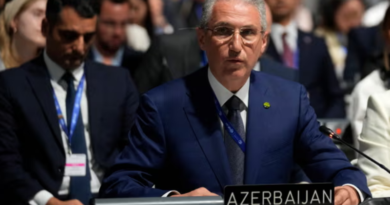G7 reaches deal to exit from coal by 2035
Energy ministers from the Group of Seven (G7) major democracies reached a deal to shut down their coal-fired power plants in the first half of the 2030s, in a significant step towards the transition away from fossil fuels.
“There is a technical agreement, we will seal the final political deal on Tuesday,” said Italian energy minister Gilberto Pichetto Fratin, who is chairing the G7 ministerial meeting in Turin.
On Tuesday the ministers will issue a final communique detailing the G7 commitments to decarbonise their economies.
Pichetto said the ministers were also pondering potential restrictions to Russian imports of liquefied natural gas to Europe which the European Commission is due to propose in the short-term.
“The issue is on the technical and political agenda (of the G7). We are working on it, I cannot go any further… if there is a final decision I will communicate it,” the minister said in a briefing with journalists.
COAL AND NUCLEAR
The agreement on coal marks a significant step in the direction indicated last year by the COP28 United Nations climate summit to phase out fossil fuels, of which coal is the most polluting.
Italy last year produced 4.7% of its total electricity through a handful of coal-fired stations. Rome currently plans to turn off its plants by 2025, except on the island of Sardinia where the deadline is 2028.
In Germany and Japan coal has a bigger role, with the share of electricity produced by the fuel higher than 25% of total last year.
Last year under Japan’s presidency, the G7 pledged to prioritise concrete steps towards phasing out coal power generation, falling short of indicating a specific deadline.
Nuclear energy and biofuels are two other issues at the top of Italy’s agenda for the meeting, and Pichetto said both would be mentioned in the final communique among options G7 nations can pick to decarbonise power generation and transports.



